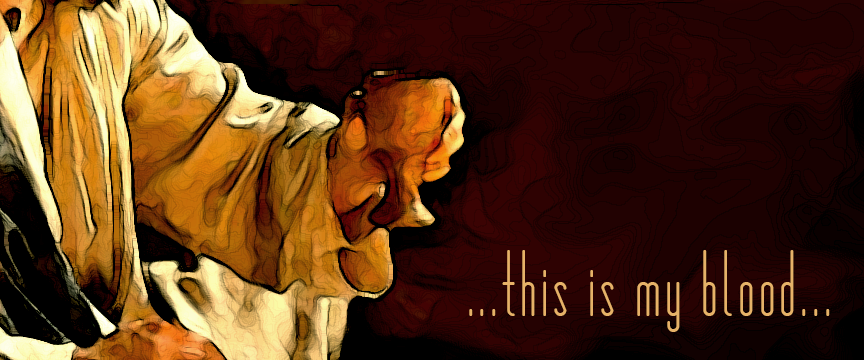Daily Devotional: Matthew 26:17-29

One of the great tragedies of the Bible is the propensity for God’s people to forget Him. Therefore, we are encouraged to “Remember the wondrous works that he has done” (Psalm 105:5). The Lord, in his Fatherly wisdom, has woven into the fabric of his people’s lives, memorials or celebrations that vividly and regularly help his people remember Him and remember the “wondrous works that he has done.” Two essential memorial celebrations instituted by God are the Passover for the old covenant people of God and the Lord’s Table or Communion for the new covenant people, the church. Both help us remember God and his wondrous works of saving his people. And there are striking parallels between the two. Yet the former is a foreshadow of the later, which is a fulfillment of the greatest work of salvation God has done.
When I was a child, my family would celebrate the Passover dinner on Easter week. I am not sure why we did. We were not Jewish. But, regardless, it helped me understand God and how he saves his people. We find the event of Passover in Exodus 11-12 (read it!). The Passover was the tenth plague God executed upon Pharaoh and the people of Egypt for not letting His people go. As the text explains, on the night of the Passover, at midnight, the Lord warned he would go throughout Egypt and strike down every firstborn of every household, the firstborn of both man and beast. But the people of Israel were instructed to eat a Passover meal that evening before the impending judgement; to take an unblemished, male lamb, kill it, eat it and apply some of its blood on the door posts and lintel of the house. They did this, and that night the Lord, in his holy wrath, passed through the land killing every first born of every household in the land of Egypt. But upon seeing the blood of the passover lamb on the door, He “passed over” the Israelite homes. The blood from the lamb served as a shelter from His wrath.
Fast forward to the Gospels and John the Baptist strikingly refers to Jesus Christ as the “Lamb of God who takes away the sins of the world” (John 1:29). Later in 1 Peter 1:18-19, we read that we were “ransomed…with the precious blood of Christ, like that of a lamb without blemish or spot.” God’s wrath is real. Pharaoh experienced it. Egypt experienced it. Yet, because of a lamb’s blood, Israel was passed over. God’s eternal wrath is real (Matthew 25:41; Romans 2:5; 1 Thessalonians 1:10). But, Jesus has become our Passover Lamb who saves all those who have repented and place their faith in Him for salvation from God’s righteous wrath.
Around 2000 years ago, on the night of the yearly Passover feast and on the night of His betrayal, Jesus, who came be the once for all Passover Lamb, ate the Passover dinner with his disciples and instituted a new memorial celebration: the Lord’s Supper (Matthew 26:17-29). Over a meal, he took bread, broke it before the disciples and said, “Take, eat; this is my body.” Then he took the cup of wine and said, “Drink of it, all of you, for this is my blood of the covenant, which is poured out for many for the forgiveness of sins.” The broken bread and poured out wine represent Christ’s substitutionary death for us on the cross. And when we consume it we are remembering Christ and proclaiming his death and our faith in Him until he returns.
Passover was the memorial celebration of God’s old covenant people, the Israelites, who were to remember God’s redeeming work of freeing them from slavery to the Pharaoh to serve and worship God as his people, which was, in a foreshadowing way, accomplished by the blood of a substitutionary lamb. The Lord’s Table is the memorial celebration of God’s new covenant people, both Jew and Gentile in the church, recalling God’s redeeming work of freeing us from sin to serve and worship God as his people, which was accomplished by the once for all death of the Lamb of God, the Passover Lamb, God’s Son, Jesus Christ.
So, during Easter, let us “Remember the wondrous works that he has done,” in providing for us the Lamb. And as we wait with eager expectation to gather again as a church, let us anticipate the joyful celebration of the Lord’s Table, where we will proclaim His death and long for his return together.
More in ITC Blog
September 29, 2021
The ABCc of Corporate prayerOctober 26, 2020
Weekly Devotional: Philippians 4:4-9September 1, 2020
Weekly Devotional: Psalm 27:4